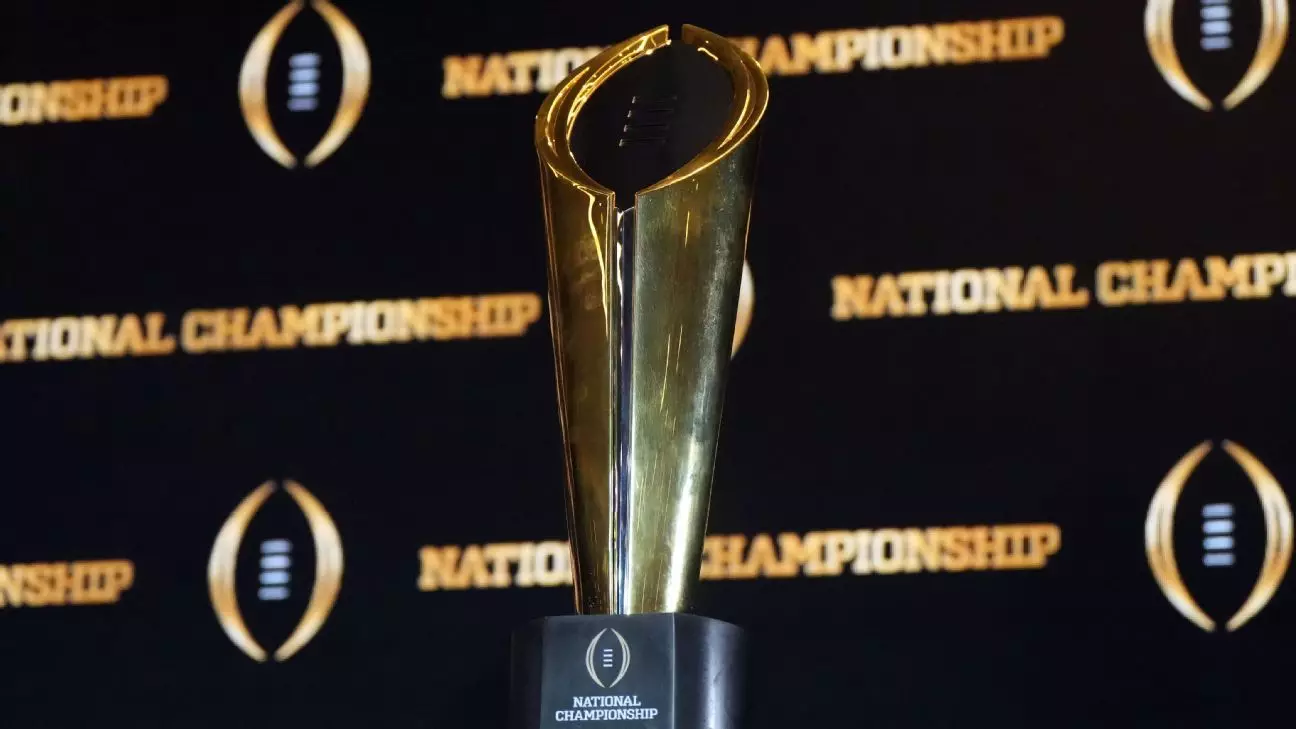The recent decision by the College Football Playoff (CFP) organization to maintain the scheduled dates and times for the Goodyear Cotton Bowl Classic and the Capital One Orange Bowl has sparked considerable debate. At the center of this controversy is SEC Commissioner Greg Sankey’s request for a schedule adjustment following the tragic events surrounding the Allstate Sugar Bowl. Sankey’s concerns about competitive fairness highlight a fundamental issue in college athletics—balancing safety, logistics, and equity in competition.
While it is commendable that Richards Clark, the executive director of the CFP, took measures to ensure the safety and security of all parties involved, including teams, fans, and staff, the decision to not flip the game schedules raises ethical questions. The rationale behind Sankey’s suggestion stems from a genuine concern for the Notre Dame team, which must navigate a tighter schedule than their opponent, Penn State. However, this concern was dismissed in favor of “logistical complexity,” leaving potential inequities unaddressed.
Safety vs. Fair Play: The Balancing Act
The recent double overtime thriller where Texas narrowly defeated Arizona State raised even more questions about scheduling fairness. With the Longhorns set to face Ohio State—who decisively beat Oregon in their own bowl game—time considerations come into play once again. Stakeholders in college football must weigh the imperative of player well-being against the principles of fair competition.
What Sankey referred to as an “unforeseen tragedy” underscores the unpredictable nature of athletic events and their broader implications. The altered schedules and logistical challenges stemming from the New Orleans truck attack forced decision-makers to confront a delicate balance between maintaining traditions, fan expectations, and ensuring competitive integrity. Thus, the decision not to adjust the schedule can be viewed as a failure to manage these competing interests effectively.
Rich Clark’s insistence on the complexity of logistics in potentially flipping the games raises additional red flags. Certainly, changing game schedules at this level is no small feat. However, critics might argue that this obstacle is somewhat disingenuous. After all, other sports leagues frequently adapt schedules in response to unexpected events, demonstrating that when necessary, adjustments can be made.
Clark’s assertion that fans have already made arrangements and that it disrupts other teams suggests a prioritization of financial implications over the principles of fair play. If college athletics are truly about the student-athlete experience, shouldn’t competitive integrity be held in higher esteem than the convenience of a few fans or pre-existing schedules? This prioritization could disillusion future players and fans who expect the sport to value fair play over logistics.
This incident highlights a broader pattern that could benefit from greater awareness and adaptive decision-making going forward. Sankey’s admission that situations can necessitate alterations reveals a possible avenue for the NCAA and other governing bodies to improve their response frameworks. Establishing contingency plans could alleviate issues in future events where unforeseen circumstances disrupt regular scheduling.
Reflecting upon how other sports have navigated similar crises may provide valuable lessons. While traditions and norms hold inherent value, they shouldn’t preclude fair play or proper responsiveness to pressing circumstances. The opportunity exists for college football to forge a pathway where logistics and player safety coexist with the fervor of game day excitement.
In sum, the current scheduling problem illustrates a pressing need for reform in how college football addresses unexpected challenges that can arise at a moment’s notice. The balance of safety, fairness, and logistical feasibility remains delicate, and as the sport evolves, so too must its governing structures. By prioritizing equitable competition and being prepared to adapt when necessary, the college football community can not only uphold the integrity of the game but also ensure that all participants—teams and fans alike—can enjoy their experience in a safe and just environment.


Leave a Reply